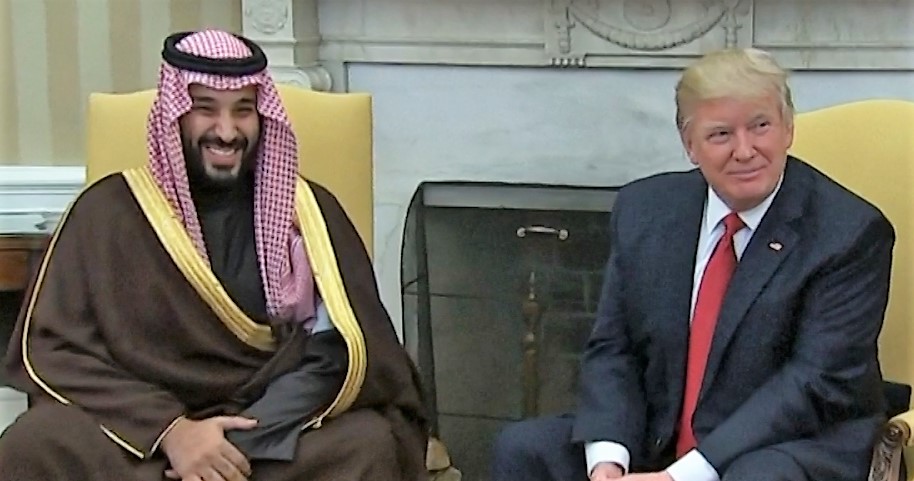President Trump doesn’t have a complete grip on members of his own party in the senate after they delivered back-to-back rebukes of his embrace of Saudi Arabia.
The senate first voted to end U.S. participation in the Saudi-led war in Yemen, and then unanimously approved a measure blaming the kingdom’s crown prince for the ghastly murder of journalist Jamal Khashoggi.
Together, the dual actions represent an unambiguous rejection of Trump’s continued defense of Saudi leaders in the face of a CIA assessment that concluded Crown Prince Mohammed bin Salman likely ordered and monitored Khashoggi’s killing Oct. 2 inside a Saudi consulate in Istanbul.
It suggests a bipartisan majority of senators will pursue broader punitive measures when Congress regroups next year — including sanctions and a halt to weapons transfers — despite the administration’s objections.
“What we showed in this vote today is that Republicans and Democrats are ready to get back in the business of working with a president — and sometimes against a president — to set the foreign policy of this nation,” said Sen. Chris Murphy (D-Conn.) a longtime advocate for checking Saudi Arabia’s regional expansion. “The United States has said, through the Senate, that our support for the Saudi coalition is no longer open-ended.”
The unanimous vote to hold Mohammed responsible for Khashoggi’s murder reflects the extent to which senators in both parties have grown tired of Trump’s continued defense of Mohammed’s denials.
It also puts significant pressure on leaders in the House — where the president’s Saudi policy is far more divisive — to allow for a similar vote to condemn the crown prince before the end of the year.
Earlier this week, House leaders maneuvered to block rank-and-file members from forcing a vote on any Yemen-related resolutions, an attempt to stop the Senate’s effort to curtail U.S. involvement in the Saudis’ military campaign by invoking the War Powers Resolution.
Senators voted 56-to-41 on Thursday to support the Yemen resolution, after seven Republicans joined all Senate Democrats to back the measure.
That figure strongly suggests a majority of the Republican-led Senate will challenge Trump on his Saudi policy next year, alongside a Democratic-led House, whose incoming leaders also have promised to be proactive about demanding changes to the status quo.
Trump has continued to defend Saudi Arabia, in part because he’s done millions of dollars worth of business there.
Son-in-law Jared Kushner also has a massive amount of business dealings in Saudi Arabia.
Trump registered eight companies during his presidential campaign that were tied to hotel interests in that country.
The companies were registered under names such as THC Jeddah Hotel and DT Jeddah Technical Services, according to financial disclosure filings.
During a rally in 2015, the day Trump created four of those companies, he said he gets along well with Saudi Arabia.
“They buy apartments from me. They spend $40 million, $50 million. Am I supposed to dislike them? I like them very much.”
After his election, Trump said on Fox News he “would want to protect Saudi Arabia.”
